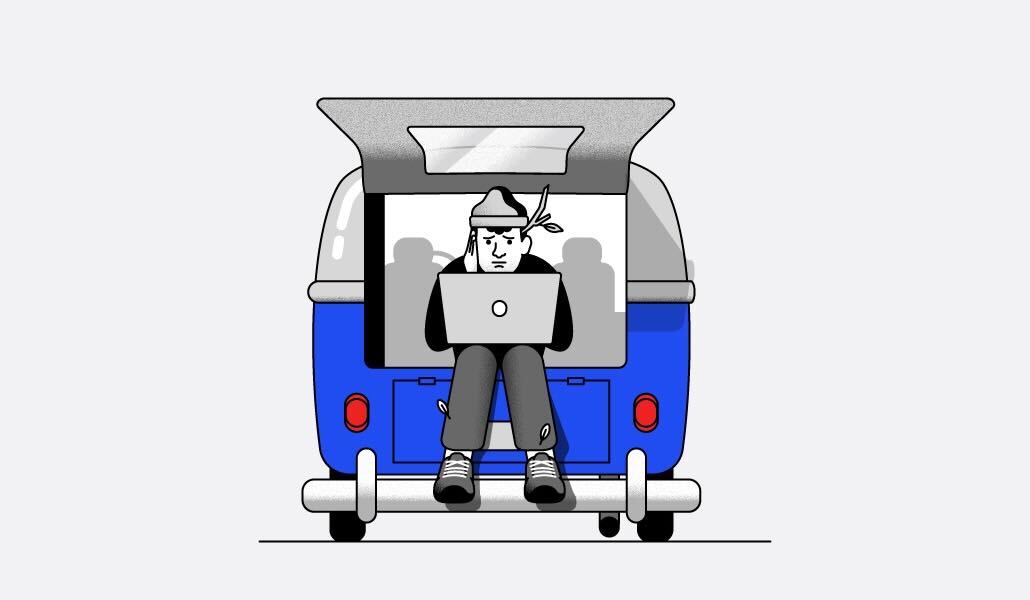On the road with digital nomads: Why the anywhere worker lifestyle isn’t for everyone

Imagine not having to pay income tax.
That’s a luxury that will soon be open to anyone willing to move to Bali and work remotely — as long as their company is based outside of Indonesia.
And not just Bali. Indonesia, which consists of a collection of 17 islands including Java and New Guinea, has introduced a digital nomad five-year visa that will allow remote workers to live across its properties tax-free as part of plans to bolster its post-pandemic economy.
Estonia and Barbados were among the first to offer a digital nomad visa in 2018. And it’s a trend that continues to build as more professionals take to the work-travel lifestyle given the coronavirus pandemic.
Indonesia’s Tourism Minister Sandiaga Uno told reporters in June that around 95% of surveyed digital nomads picked his country as a “top of mind” location for their work.
The digital nomad lifestyle may be growing in popularity, but it’s not for everyone. Nor are they easily pigeonholed by a single definition.
Who are the digital nomads?
There are more than 15 million American workers currently calling themselves digital nomads, more than double the number from pre-pandemic 2019, according to research from MBO Partners, a platform for independent business consultants.
The research found that millennials (aged 26 to 41 years old) are the biggest group of digital nomads at 44%. Generation Xers (aged 42 to 57 years old ) make up 23% and baby boomers (between 58 and 76 years old) which represent 12%.
Carlos Macias, a journalist and content strategist, and his husband gave up their New York City apartments to become digital nomads early in the pandemic. “We were very scared and doubtful during the first Covid lockdown and said: ‘If we are going to die, we will do it on our terms.’ Now that we have embraced the lifestyle, we love it and do not regret our wild pivot,” said Macias.
Some digital nomads are globetrotters, traveling for years between countries and across continents. Others are on the road for a few weeks or months at a time and never cross a border.
Macias has remained in the U.S., living in an RV. “We primarily choose gay-owned campgrounds as our destinations. Most of these campgrounds are clothing-optional with a variety of amenities like swimming pools, jacuzzis, social spaces, nature trails and nightclubs. So family, friends, and folks, in general, think we live in a 24/7 vacation mood,” he said.
The reality is, of course, a little different. The couple doesn’t get the sort of city perks that working professionals have easy access to — like cleaning, laundry and dining out or getting takeout after a long day. “If you add all that to our 35 to 40-hour work week, we feel like we are busier than ever,” added Macias.
Meanwhile, medical care can be a little trickier to manage while on the move. Macias has managed it by switching to a doctor that offers virtual appointments and relying on mail orders for prescriptions. As for cell phone reception and wi-fi availability — “this will make or break you,” he added. Plus, suddenly the cost of moving their RV every two to three months has become more painful with hiked gas prices.
Elsewhere, nomads on the European continent are also on the rise. Naturally, working on the days you’re traveling from A to B can be rougher with wi-fi patchy and other potential snafus. But on the whole, those who have embraced this lifestyle choice, also embrace the downsides.
April Walloga is a content writer and producer and so-called digital nomad in Europe. For her, being a nomad means she can still work a full-time job, without sacrificing her joy for travel. “As an unmarried person with no children, I’ve often felt like companies didn’t care about my work-life balance,” said Walloga. “Like I was all theirs and what else did I have to do? I think there are a few smart leaders out there who see this and realize remote work is part of the salve for millennial burnout.”
Combatting loneliness
Naturally, one of the downsides of living a nomadic life is occasional loneliness — and that’s a symptom nomads must be proactive about. “Traveling constantly is thrilling and exhilarating but after the honeymoon stage, you start missing your loved ones. Some days, loneliness engulfs you and could lead to some depression if you don’t keep in constant communication with them,” said Macias.
Still, for Macias, the sacrifice is worth it and has led to a much healthier lifestyle than when he and his husband lived in the city. “The experience is very nurturing for your soul,” he added.
Kencko — a direct-to-consumer business that supplies plant-rich foods and nutrition coaching, has a flexible working policy that’s allowed growth marketing manager Christine Chen to embrace life as a digital nomad. While she misses the organic small talk that typically happens in an office, and that ability to just tap someone on the shoulder and ask a quick question — she has found other ways to connect with coworkers, many of whom are in different countries.
“It’s been so helpful and eye-opening getting to experience the culture and lifestyle of other countries, and I think it’s made me a better marketer as well,” said Chen. “It may seem intimidating — especially as a woman — but this lifestyle is a lot more accessible than most people think — there are lots of online groups for nomad workers where people are always sharing tips, or looking for new friends to go on trips with,” she added.